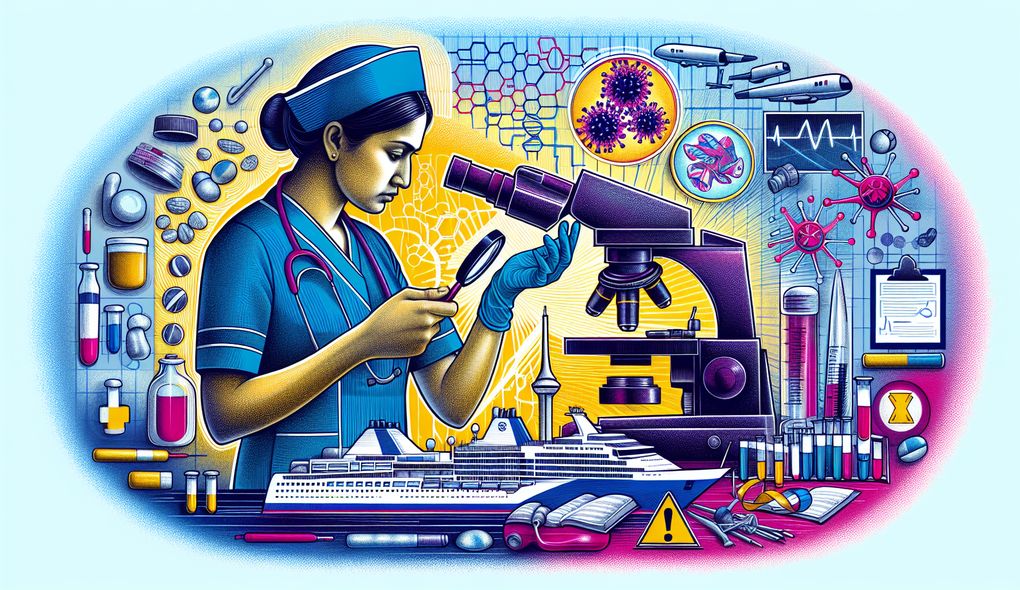Can you give an example of a time when you collaborated effectively with an interdisciplinary team in a forensic nursing setting?
INTERMEDIATE LEVEL

Sample answer to the question:
Sure! There was a case where I collaborated with an interdisciplinary team in a forensic nursing setting. We had a patient who was a victim of sexual assault, and it was crucial to handle the situation with care and precision. I worked closely with a forensic scientist, a police officer, and a therapist to ensure that we collected and preserved the necessary evidence while providing emotional support to the patient. We held regular meetings to discuss the progress of the case and coordinate our efforts. Throughout the process, I maintained open communication with the team, sharing important information and updates. Together, we were able to gather the required evidence, provide the necessary medical care, and support the victim through the legal process. It was a challenging experience, but our collaboration was essential in achieving justice for the patient.
Here is a more solid answer:
Certainly! I can give you an example of a time when I collaborated effectively with an interdisciplinary team in a forensic nursing setting. In one case, we had a young victim of child abuse who required our immediate attention. I worked closely with a child psychologist, a social worker, and a legal advocate to address the needs of the child. We conducted joint interviews, ensuring that the child felt safe and comfortable throughout the process. In addition to collecting and preserving evidence, we focused on providing emotional support and referral services to the child and their family. By sharing our expertise and coordinating our efforts, we were able to create a comprehensive plan for the child's recovery and support them through the legal proceedings. Our collaboration not only ensured the child's well-being but also contributed to a successful prosecution of the abuser.
Why is this a more solid answer?
The solid answer expands on the basic answer by providing specific details about the collaboration process, the interdisciplinary team involved, and the candidate's role in addressing the needs of the victim. It highlights the importance of emotional support and referral services in addition to evidence collection, and emphasizes the positive outcome achieved through effective collaboration.
An example of a exceptional answer:
Absolutely! Let me share with you an exceptional example of collaborating effectively with an interdisciplinary team in a forensic nursing setting. In a complex case involving domestic violence, our team consisted of a forensic nurse practitioner, a domestic violence advocate, a legal expert, and a law enforcement officer. We recognized that addressing the multiple layers of trauma experienced by the victim required a holistic approach. We held regular case conferences, discussing the unique aspects of the case and tailoring our interventions accordingly. I took the lead in coordinating the team's efforts, ensuring that everyone was informed and engaged. We collaborated closely with community organizations, such as shelters and counseling services, to provide the victim with comprehensive support. This included securing a safe living environment, connecting them with legal aid, and arranging therapy sessions. By leveraging our collective expertise, we not only provided the necessary medical care and evidence collection but also empowered the victim to break free from the cycle of abuse. This case further underscored the importance of collaboration and the significant impact it can have on the lives of survivors.
Why is this an exceptional answer?
The exceptional answer goes above and beyond by providing a detailed example of collaborating with an interdisciplinary team in a forensic nursing setting. It showcases the candidate's leadership in coordinating the team's efforts and their ability to address the diverse needs of the victim. The answer also highlights the importance of community collaboration and the long-term impact of effective interdisciplinary teamwork.
How to prepare for this question:
- Reflect on your previous experiences collaborating with interdisciplinary teams in a forensic nursing setting. Think about the specific challenges you faced and how you overcame them.
- Consider the different professionals involved in a forensic nursing setting and their respective roles. Reflect on how you can effectively collaborate with them to provide comprehensive care to patients.
- Study the legal and ethical aspects of forensic nursing to ensure you have a solid understanding of the field.
- Develop your communication and interpersonal skills, as effective collaboration requires clear and respectful communication with team members from various disciplines.
- Research case studies or real-life examples of successful collaborative efforts in forensic nursing to gain insights and ideas for your response.
What are interviewers evaluating with this question?
- Collaboration
- Interdisciplinary Teamwork

